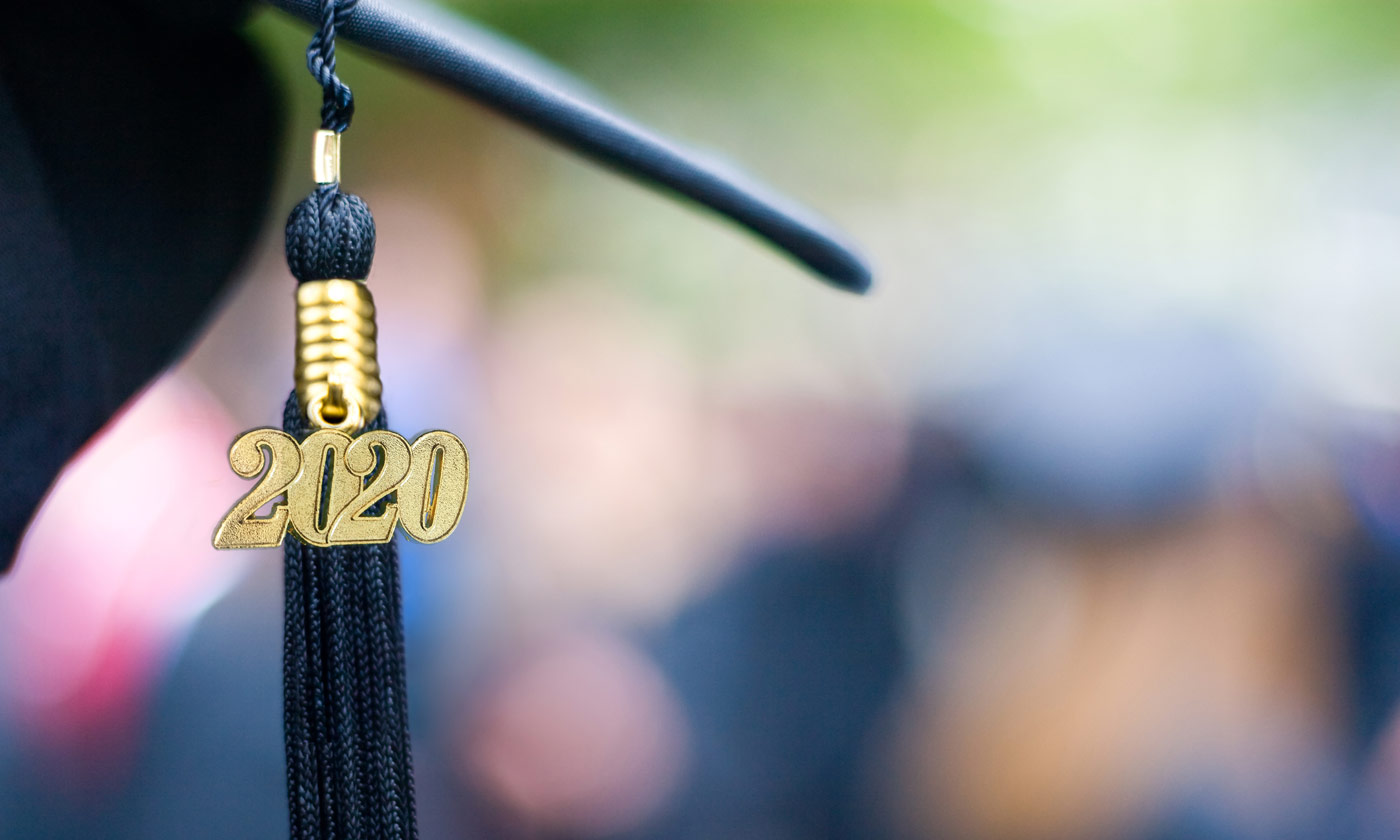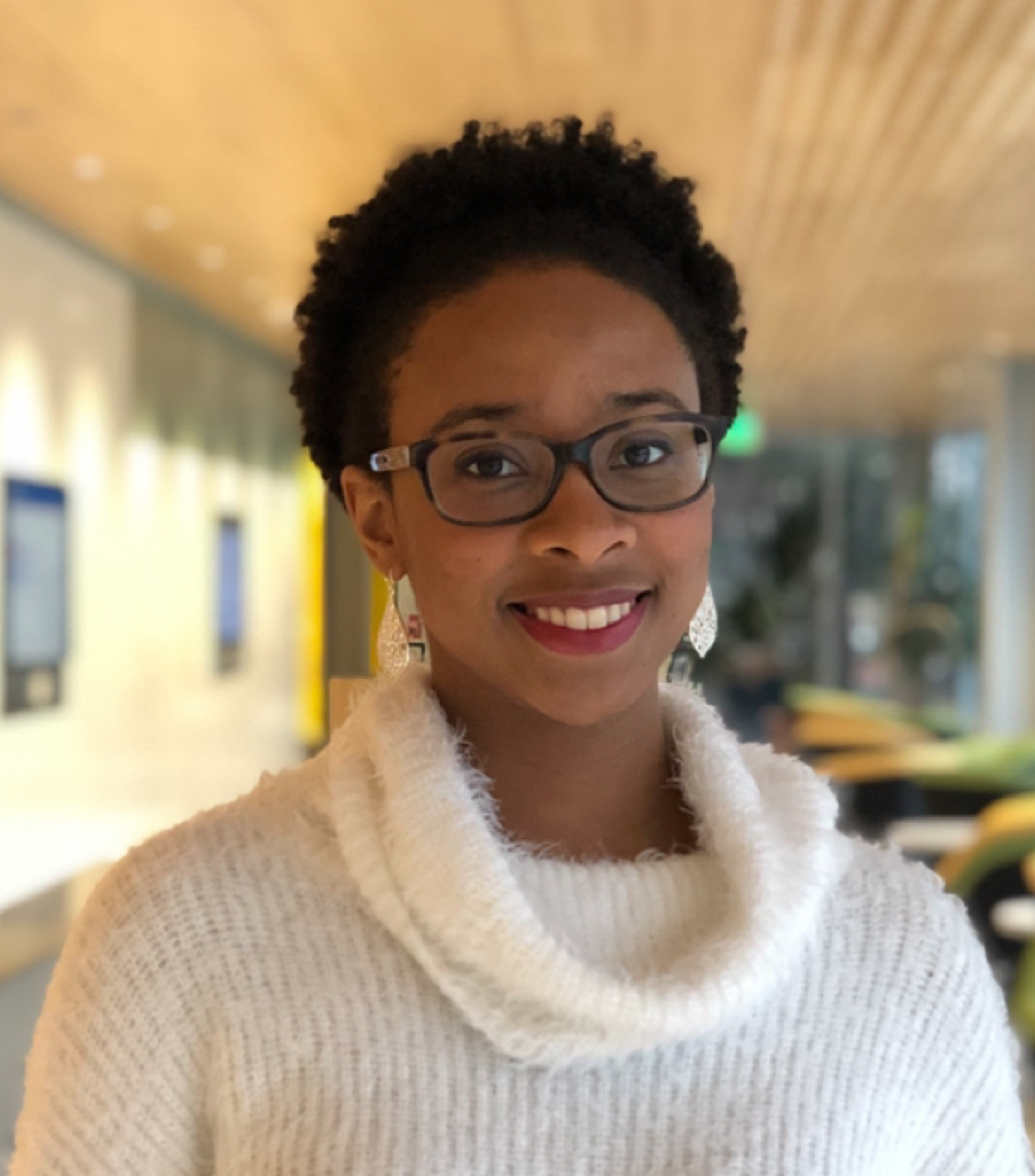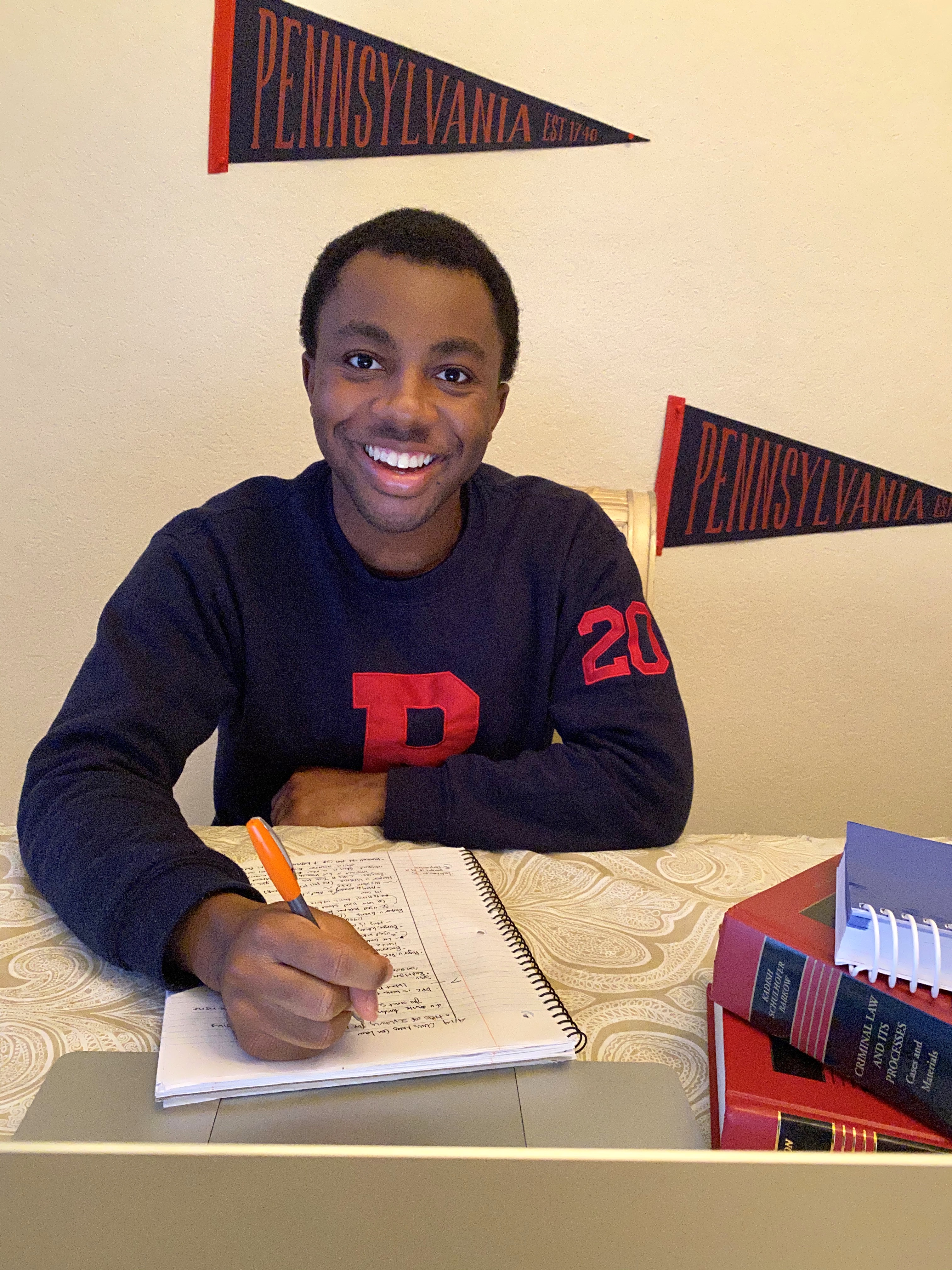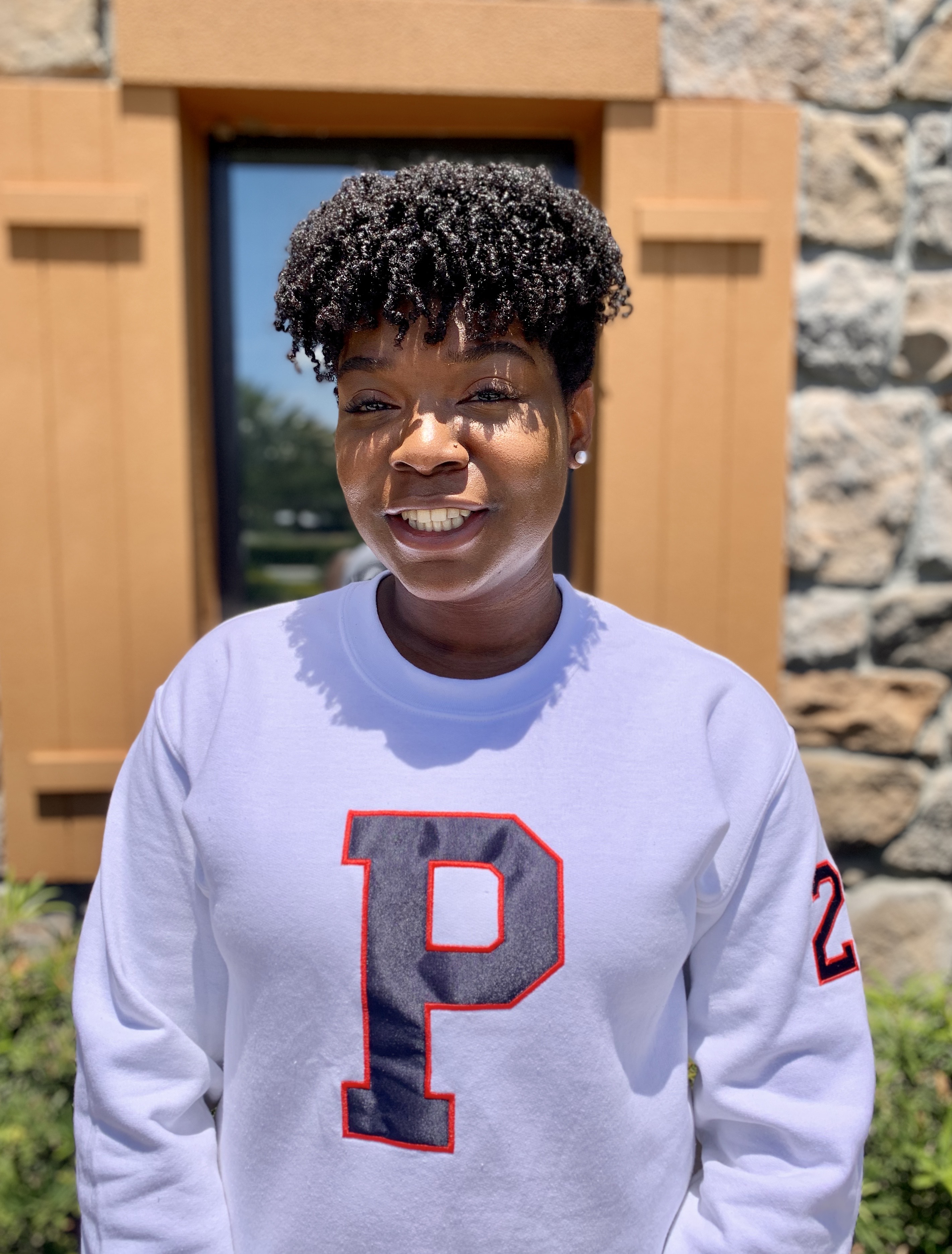Senior Stories 2020
Penn Arts & Sciences seniors reflect on their final semester—and what the future holds.
The spring semester culminated in many unique graduation ceremonies—whether virtual, homegrown, or celebrity-sponsored—that symbolized the adaptive qualities of Penn Arts & Sciences undergrads. These same qualities made a uniquely challenging semester a success. Below, we share in their journey as they reflect on what their last term taught them, and what lies ahead.
How has virtual learning altered your spring semester?
CHRISTINA STEELE: Transitioning to virtual learning definitely required a lot of troubleshooting. I remember having to walk through how to use the share-screen option chat window with one professor on Zoom. However, overall, at least speaking for myself, it has been a smooth transition.
In terms of my spring semester as whole, we can all say that it has taken away the chance to spend our last few moments as undergraduate students together and really experience those end-of-the-year landmark events even beyond graduation. I am so glad that I made a point to try to have dinner with a few friends before departing for any sort of semester breaks. I did not realize my bus ticket home this very last spring break would be a one-way ticket and that I would not be returning to the university. It was a striking shift. While my friends from campus and I all still keep in touch remotely and virtually, it of course will never parallel the experiences we could have had as graduating seniors.
What is it like to be graduating at a time like this?
CHRISTINA STEELE: Most of the process has been one of adapting and trying to look for the silver lining. Regarding graduation, while it may have been more ideal to have it on campus, graduation was never really about the venue. It was more of what the venue provided in bringing family and friends together. As a first-generation college student, graduation is a particularly important event to me, my siblings, and parents. Given that I will still be able to have at least that shared experience of collective recognition in whatever format, I can still be satisfied to know that this celebratory moment will not be lost to memory.
SONARI CHIDI: This May, I officially finished my senior year and my first year as a full-time Penn Law student, through the six-year B.A/J.D. program. As a submatriculant to Penn Law, I had been preparing for a somewhat unique senior year and spring semester but could never have anticipated a scenario such as that presented by the COVID-19 pandemic.
This is a difficult and uncertain time for many of us. Some of my peers have lost loved ones or are dealing with family members and friends who are ill, and many are navigating impacted employment prospects. We have come together to offer each other support through these difficult times, and it has reminded me why I am so grateful to be part of the Penn community.
ELIZABETH LAZARUS: It definitely feels surreal to be graduating in the midst of a pandemic. There is so much uncertainty in the world today, but this has made me realize the importance of cherishing the time spent with those you love—so thank you to my family, friends, and mentors. I am so very grateful for your love and support throughout the years.
What are your plans this summer? How have they changed given the pandemic?
CHRISTINA STEELE: I plan to work towards publishing my senior thesis honors project in psychology (on the impact of intergroup contact on the Penn’s students’ intergroup perceptions in an Academically Based Community Service course) with my mentor Adrianna Jenkins, [Assistant Professor of Psychology], over the summer. Additionally, I will be continuing writing a paper for publication that I had initiated this past summer with the National Science Foundation Research Experience for Undergraduates program on the impact of Attention-Deficit/Hyperactivity Disorder (ADHD) on romantic relationship functioning.
Due to the pandemic, my original summer plans (which were to continue doing summer research) have all been cancelled. I am currently looking for work through the Netter Center for Community Partnerships, which has mentioned they would be offering paid remote work for students, in order to do college-readiness preparation programming for rising high school students in West Philadelphia. However, I am also in the process of trying to locate any more available opportunities!
SONARI CHIDI: I am working as a legal intern at a large technology company this summer. The internship is now virtual, and they shipped a full technology package to interns to ensure we have everything we need to be fully connected, as we support our practice groups. I am grateful for the opportunity to contribute to a company at the forefront of the technological solutions that keep the world connected, collaborating, and productive, regardless of our physical locations and public health directives, during these difficult times.
Are you working on any research projects?
SONARI CHIDI: Shattering Refuge [a documentary on media representation of refugees and immigrants] was recently accepted into a film festival, which has had to switch to a completely virtual format due to the pandemic. This has created an interesting new paradigm for the future of film festivals, which are traditionally large, in-person gatherings. I am very interested in what this means for the future of film festivals and whether this is a temporary adjustment or the catalyst to a permanent, industry-wide change in the viewing, deal-making, and networking that traditionally occurred in-person at festivals.
A few research questions I have been exploring are: How will content producers and distributors utilize technology, including the cloud, to adapt to these circumstances? How will technology adapt to this opportunity to optimize the experience of the virtual film festival attendee? What partnerships might be developed between technology companies and content production and distribution companies in this new paradigm?
ELIZABETH LAZARUS: I am working on the Twitter Black Health Project with Dr. [Robin] Stevens, [Assistant Professor of Nursing], with the goal of exploring recruitment strategies for Black men via social media.
Has the crisis changed how you think about education?
CHRISTINA STEELE: In terms of education, it is quite unfortunate that classes have not only had to move online to virtual format, but that in the upcoming academic year classes may potentially be online again—meaning many students will yet again be missing some momentous life experiences (e.g., freshmen orientation, etc.). On the other hand, this crisis has also shown that massive changes, when deemed necessary by administrators, can indeed be carried out swiftly. Universities were able to make this transition over a matter of weeks, which makes you question how much more can be done to tackle other issues if there is a large motivational force to do so.
SONARI CHIDI: Benjamin Franklin said the aim and end of all learning is service to society, and this pandemic reminds us of that truth more urgently than ever before. Our experience at Penn has inspired us to find meaningful ways to utilize our skills, tools, and resources to serve our communities. This can be helping someone navigate the unemployment claims process, volunteering to grocery-shop or pick-up prescriptions for vulnerable neighbors, joining a local COVID-19 mutual aid group, offering job search help, and so much more. Whatever the future holds, the Penn ethos of service to society is what it will take to rebuild and strengthen our communities and world. There is a certain comfort in knowing that as Penn alums we already have this key tool.
ELIZABETH LAZARUS: As I enter graduate school in the fall, this crisis has further encouraged me to do the work that dismantles the deep legacy of discrimination and closes the gap of health disparities, inequalities, and inequities that is faced by people of color in the U.S.
Has the pandemic changed your thinking about society at large?
CHRISTINA STEELE: The seemingly impossible can be possible. Who knew that the 2011 movie Contagion would become more than just a fictional tale? It has also indicated that society is not truly at the level of preparedness required for mass transitions. There has been a stream of defiant reactions from some who are frustrated with social distancing and isolation, and instead ignore these rules, which is ultimately detrimental to the efforts at large to curtail the spread of the virus. This suggests that collective efforts, especially at the national level (not to mention the worldwide level) are certainly an ambitious feat to achieve.
However, it is certainly not impossible. In terms of a silver lining, this situation has also illustrated that shared difficult moments can bring people together. This has been a time of reconnection with people from past or present with whom we may have been out of touch, but now are reaching out to more than ever before. Overall, I learned even more now than before that you have to learn to make the most of the moments you do have, regardless of what shape or form these moments take, because you may not always have them in the future. Life experiences are certainly ephemeral, and this situation has certainly highlighted this point for many.
SONARI CHIDI: This pandemic has highlighted that the world is a global village of connected communities. Decisions made in one community can drastically impact people’s lives in others. As a result, there is a responsibility to eschew narrow-minded, cavalier approaches to public health and public policy decisions and collaborate across these communities to empower fact and research-based solutions.






